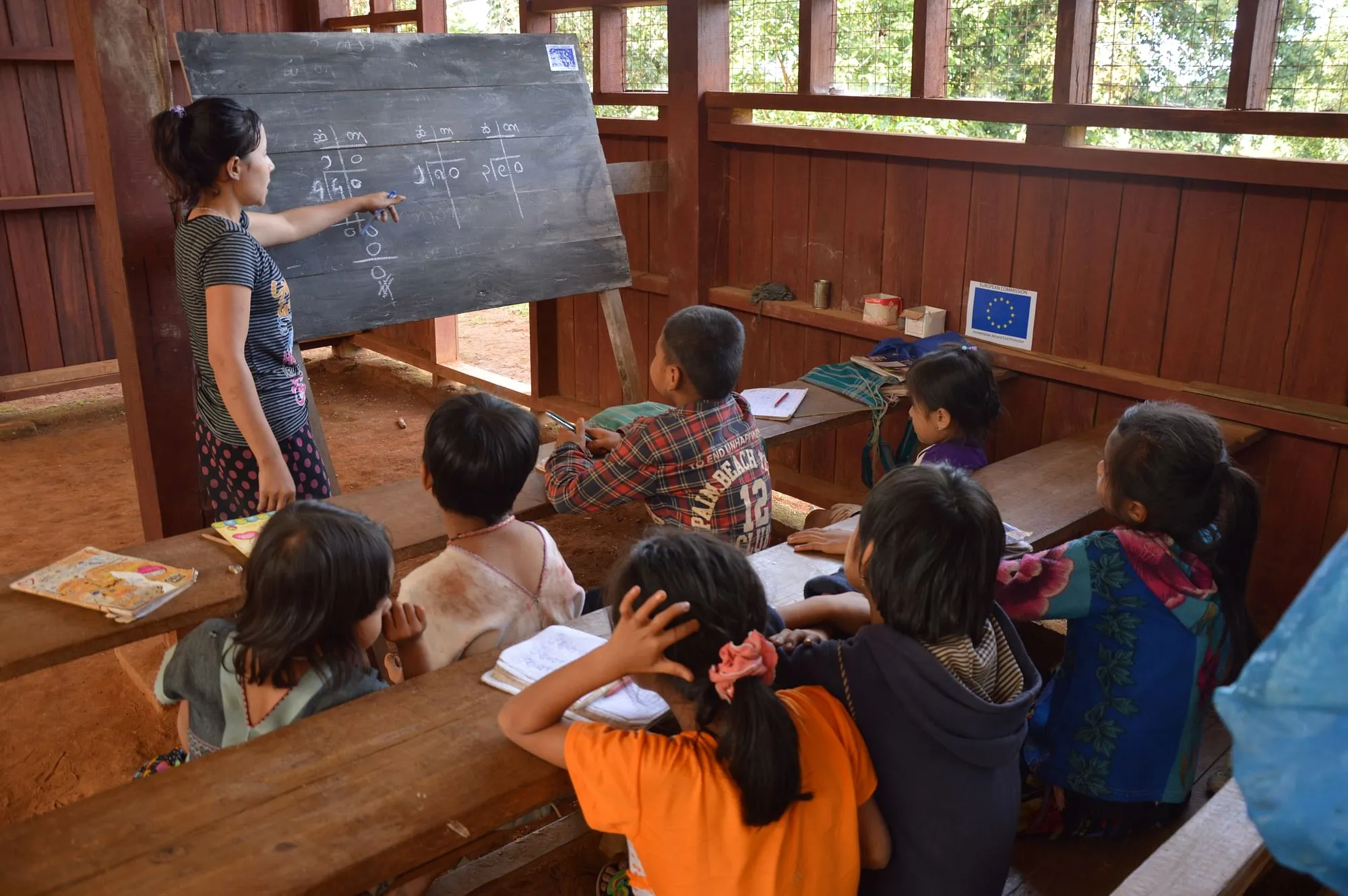‘One who dares to teach must never cease to learn.’
In virtually every country in the world, reform efforts are dramatically increasing expectations for students and consequently for teachers. In response to these reform initiatives, educators must master new skills and shoulder new responsibilities.
Modern-day teachers need to deepen their knowledge and learn new methods of teaching. They need to work with colleagues to critically examine the new standards being proposed and to revise the curriculum.
They need opportunities to develop, master and reflect on new approaches to working with children. In short, they need to sharpen, share and transfer skills in order to promote a healthy learning environment both for the children and themselves.
Researchers, who must rely on measurable outcomes, tend to define effective teachers as those whose students show statistically significant gains in reading and mathematical achievements tests. Other more objective qualities have also been associated with effective teaching.
These include positive expectations, inspirational leadership and a wide repertoire of teaching skills and motivational techniques; since no one instructional model will work with all students all the time. An essential attribute of good teaching is therefore sound judgment and good sense-qualities that cannot be reduced to finite, measurable skills.
There is substantial evidence to show that teachers who have a solid foundation both in pedagogy and subject matter at the undergraduate and/or graduate level are more effective teachers and have a positive influence on the student’s achievement. The place to begin training the kind teachers who are grounded in subject matter as well as teaching knowledge is in high quality preparation programmes that are rigorous and thorough.
In this era of higher standards and increasing number of students with diverse learning needs, teachers need to be able to organize and present subject matter in a manner that all students can understand and learn. To help teachers incorporate new standards, methods and concepts into their teaching, the changing education landscape encourages collaborative efforts among teachers and teacher-learning as a career-long process.
What teachers know and how much they know affects all the fundamental tasks of teaching. What a teacher understands about content and scope of the subject on the one hand and her students on the other hand, directly influence how judicially she selects from texts and how effectively she presents material in the class.
No other device can make a difference to the learning process as much as a knowledgeable, skillful teacher can. It is slowly, but gradually being accepted at all levels that effective teaching is a key factor initiating school reforms much more than standardized testing, better curriculum, or smaller-sized classes.
For teachers to have continuous access to their latest knowledge about teaching and learning, schools must:
Institute extended, teacher preparation programmes that provide internships in a professional development school.
Devise suitable mentoring programmes for new/first teachers that provide support.
Create permanent, perennial sources of professional development.
Embed professional development in teacher’s daily work through joint planning, study groups, peer-coaching and research.
Effective teaching is therefore only possible in an environment where standards are not waived or lowered to admit people without qualifications to teach. An effective teaching environment is one where pre-service teacher training is strong and bonded, where adequate and sustained mentoring is required where transfer of skills does not take place in an ad hoc workshop, but one which takes place smoothly and abundantly through well-devised programmes.
Schools must therefore direct their professional development funds in a coherent way toward sustained, practically useful learning opportunities for teachers.
Where professional development funding is paltry, most school offerings are limited to ‘hit-and-run’ workshops which do not help teachers to learn the sophisticated teaching strategies; they need to address the very challenging learning goals with very diverse populations of students. A natural corollary of that would imply teachers need time and opportunities to learn from one another. Peer monitoring is an accomplished and tested way to obtain on-the-job training, which helps teachers’ cross-train, transfer knowledge and get new staff to speed quickly and efficiently.
In countries like Japan and China, teachers routinely work with their colleagues on developing curriculum, polishing lesson, observing each other’s teaching, participating in study groups and conducting research on teaching.
A major hurdle in the way of imparting effective teaching is therefore the presence of teachers who enter the profession with inadequate preparation and who face limited opportunities to enhance their knowledge and skills over the course of their careers.
Dr. Farooq Ahmad Wasil, a published author, and an educationist, is Consultant and Advisor, to TSPL (Thinksite Services Private Limited) He has over 3 decades of experience in the field of education Management – setting up, operating and managing schools.
DISCLAIMER: The views and opinions expressed in this article are the personal opinions of the author.
The facts, analysis, assumptions and perspective appearing in the article do not reflect the views of GK.






